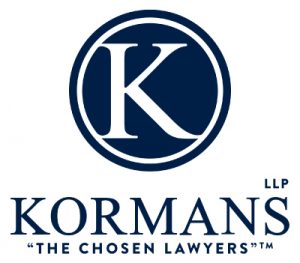Methods of Business Organization 101
By Kormans LLPOne of the most important considerations when setting up a new business is the method by which the business will be carried on. Determining the most ideal method for structuring your business will involve considerations related to the nature of the business, the individuals involved with the business and their intended roles and contributions, the legal liability of the parties involved, among many other factors. No matter the method of business organization chosen, there will be various tax laws and rules to contemplate. For this reason, it is imperative when setting up your business that you consult your lawyer in conjunction with an accountant who is cognizant of the tax consequences of each given method.
The following is a brief overview of the most common forms of business organization and their respective characteristics. Once you are ready to set up your business, you should canvass the following options with your lawyer and accountant in order to proceed judiciously. Please consult with your accountant for details on the taxation of the business structures noted below.
Sole Proprietorship
This is one of the simplest forms of business organization as there are minimal legal steps required for it to take effect. A sole proprietor carries on business for their own benefit and has sole responsibility over the business. They have no partners, although they may hire employees.
Advantages: Sole proprietorships are inexpensive and relatively easy to set up. Many sole proprietors run their business under their own legal name, although they may register a business name.
Disadvantages: A sole proprietor has unlimited legal liability. There is no legal barrier shielding a sole proprietor’s personal assets and property when it comes to their legal obligations and responsibilities. They assume all risks related to the business.
Partnership
This method involves two or more individuals (or corporations, trusts, partnerships) carrying on business together, with a view to profit. Each partner contributes to the partnership (capital, property, labour, etc), and in turn, profits and losses are split among them, usually in accordance with a written partnership agreement which governs the details of the partnership. In Ontario, there are three types of partnerships: General Partnerships; Limited Liability Partnerships (LLPs); and Limited Partnerships.
The type of partnership chosen will depend on the circumstances and nature of the business, and the extent to which there is a desire to limit legal liability. Partners in a general partnership will have unlimited legal liability, unlike in limited partnerships where there are options for certain partners to limit their liability to the extent of their contribution to the partnership. LLPs are typically only used in specific professions and allow for limited liability to a certain extent.
Advantages: Certain types of partnerships are inexpensive and easy to set up. Some types of partnerships allow for limited liability. The responsibilities and risks involved with the business are shared among the partners.
Disadvantages: Partners in a general partnership have unlimited liability relating to the debts and obligations of the partnership.
Corporation
A corporation is a legal entity which is separate from its owners. It has many of the rights and responsibilities of a natural individual such as carrying on business, entering contracts, owning assets, and hiring employees (directors, officers, accountants, etc). It is, for all intents and purposes, a legal person. A corporation can also incur liabilities. The owners of a corporation are called shareholders, and they purchase shares in the corporation. Shareholders may enter a shareholders’ agreement to govern their rights and obligations.
Advantages: The owners of a corporation are shielded from liability (the “Corporate Veil”). Shareholders are not personally responsible for the debts and liabilities of a corporation unless they have chosen to personally guarantee those debts or liabilities. There may also be taxation benefits, which you should canvass with your accountant.
Disadvantages: May be more expensive or complicated to set up.
Regardless of the method chosen, the lawyers at Kormans LLP can help. We have assisted many clients with incorporations, shareholders’ agreements, partnership agreements, and much more. Contact us today to get started!
Join our newsletter and don’t miss out on a blog post!



